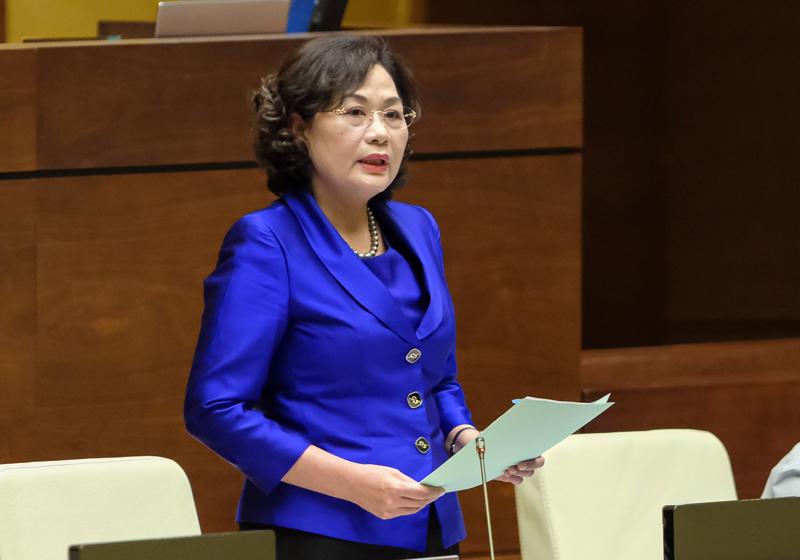Vietnam c.bank committed to lowering interest rates to aid businesses
The Government’s efforts have resulted in a modest rise of 0.09% in the average interest rates against early 2021.
The State Bank of Vietnam (SBV) considers lowering interest rates to aid businesses and people as one of its key tasks.
| SBV Governor Nguyen Thi Hong at the interpellation session. Source: quochoi.vn |
SBV Governor Nguyen Thi Hong gave the remarks when she appeared before the National Assembly in an interpellation session on June 8.
According to Hong, over the past months, the SBV has been taking steps to prevent interest rates from rising, however, such efforts face huge challenges due to external factors, such as rising interest rates in other countries and high inflationary pressure.
Meanwhile, the interest rates also depend on the demand for capital, for which Hong noted credit growth has expanded by over 8% as of the present.
“The expansion rate is quite high compared to the year’s target of 14%, which is putting pressure on the central bank’s effort to rein in interest rates. However, the SBV has managed to keep the rising level of interest rates at 0.09% compared to early 2021,” Hong said.
Hong pointed out the National Assembly’s resolution No.43 on socio-economic recovery, which sets the target of lowering interest rates and stabilizing macro-economic conditions.
“The SBV, therefore, is maneuvering necessary tools to ensure economic stability and urging credit institutions to lower interest rates for businesses via cutting operational costs,” she said.
Hong also acknowledged the difficulties of small and medium enterprises in accessing bank loans, saying this is partly due to their low credit rating that is based on the assessment of financial capabilities and corporate governance quality.
“Those with lower rating would be subject to higher interest rates compared to others,” Hong said, noting the SBV would continue to instruct banks to lower interest rates for businesses and people.
In late March, the Vietnamese Government started providing an interest subsidy of 2% per annum on commercial loans for businesses, cooperatives, and households for the 2022-2023 period, with maximum funding of VND40 trillion (US$1.76 billion).
The support is part of the Government’s socio-economic recovery program worth VND350 trillion ($15.4 billion) to aid the economy in the post-pandemic period.
Credit institutions operating Hanoi have been providing preferential loans for priority fields, while creating favorable conditions for businesses to access credit and supporting those severely affected by the pandemic. It is estimated that by the end of June, total outstanding loans in the city would reach VND2,648 trillion, up 1.3% month on month and 6.7% against the end of 2021. This would include short-term loans of VND1,086 trillion, up 1.4%, mid- and long-term loan of VND1,562 trillion, up 1.1%. |












